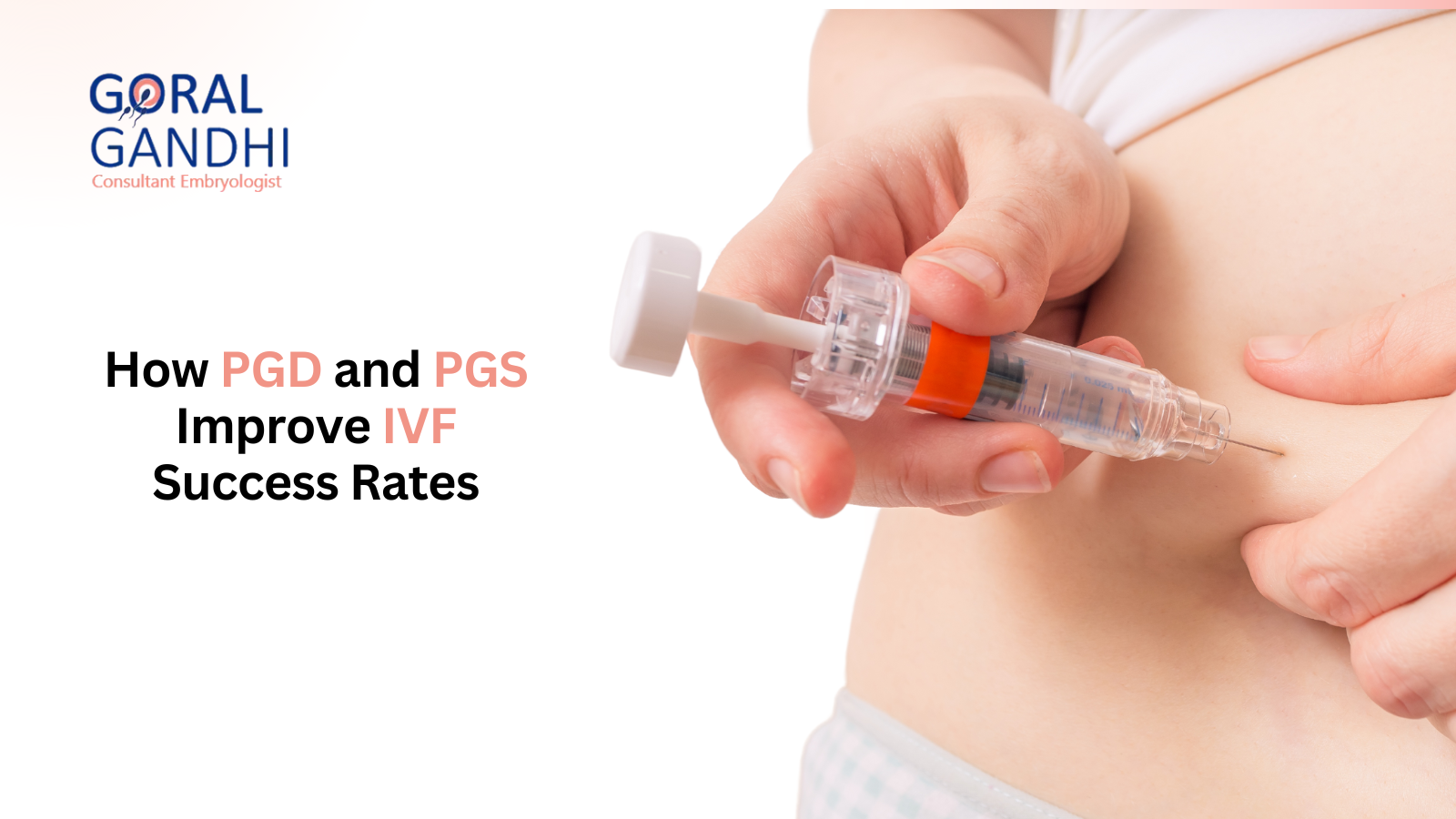

E-Brochure - Download Now!


For many couples, In Vitro Fertilisation (IVF) has become a symbol of hope on the journey towards parenthood. However, the success rates of IVF can vary, and for some, achieving a successful pregnancy can be a challenging process. Thankfully, advancements in medical technology have introduced powerful tools like Preimplantation Genetic Diagnosis (PGD) and Preimplantation Genetic Screening (PGS) that can significantly increase the chances of a successful IVF cycle. Read on to learn about the significance of PGD and PGS, how they work, and how they significantly enhance IVF success rates, offering hope to many aspiring parents.
Traditionally, IVF involves selecting the healthiest embryos for implantation based solely on morphological assessment. While this approach has helped countless couples achieve their dream of parenthood, it doesn't account for potential genetic abnormalities that might be present in the embryos. This is where PGD and PGS come into play. These innovative techniques allow specialists to assess the genetic makeup of embryos before implantation, providing a clearer picture of their viability and reducing the risk of miscarriage or the transmission of genetic disorders.
Preimplantation Genetic Diagnosis (PGD) is a genetic testing technique that identifies specific genetic disorders in embryos before they are transferred to the uterus. It is particularly useful for couples with known genetic mutations or a family history of genetic diseases. PGD allows these couples to select free embryos from these conditions, thereby preventing the transmission of genetic disorders to their offspring.
The process of PGD involves several steps:
PGD is particularly beneficial for:
Preimplantation Genetic Screening (PGS) screens embryos for chromosomal abnormalities that could affect implantation and pregnancy outcomes. Unlike PGD, which looks for specific genetic disorders, PGS evaluates the embryo's overall chromosomal health, ensuring the correct number of chromosomes is present.
The process of PGS is similar to PGD:
PGS is especially recommended for:
Numerous studies have demonstrated that the use of PGD and PGS can improve IVF success rates. According to research, the success rates for IVF with PGS can be as high as compared to those without PGS. This significant increase is largely due to the ability to select the healthiest embryos, enhancing the chances of a successful pregnancy.
Reduction in Time and Cost
By selecting only the healthiest embryos, PGD and PGS can reduce the need for multiple IVF cycles. This saves time and reduces the financial burden associated with repeated treatments. Couples can achieve successful pregnancies more quickly, with fewer emotional and physical demands.
Emotional and Psychological Benefits
The journey of IVF can be emotionally taxing, especially when faced with repeated failures or miscarriages. PGD and PGS offer peace of mind by ensuring that only genetically healthy embryos are transferred, reducing the uncertainty and stress that often accompany IVF. Knowing that you have done everything possible to maximise your chances of success can provide immense relief and emotional stability.
The success of PGD and PGS heavily relies on the expertise and technology of the IVF centre. Therefore, selecting the right clinic is crucial.
Importance of Expertise
A skilled team of embryologists, geneticists, and fertility specialists is essential to accurately and successfully implement PGD and PGS. The professionals' experience and knowledge can significantly impact the treatment's outcome.
What to Look For in an IVF Centre
Mumbai has several top IVF centres offering PGD and PGS services. Some of the best include Nova IVF Fertility, Jaslok Hospital and Research Centre, and Bloom IVF Centre. These clinics are known for their state-of-the-art facilities, experienced specialists, and high success rates in IVF treatments.
PGD and PGS are powerful tools that can significantly improve the success rates of IVF by ensuring that only the healthiest embryos are selected for transfer. For couples facing fertility challenges, PGD and PGS offer a clearer path to parenthood by minimising the risks and uncertainties associated with IVF. Choosing the right IVF centre and utilising these advanced technologies can boost your chances of success and move one step closer to achieving your dream of having a family.
If you are considering IVF and want to explore whether PGD or PGS might be right for you, consult with an IVF specialist today. Goral Gandhi is here to provide personalised advice and to guide you throughout this journey. Book a consultation with her to learn more about how PGD and PGS can enhance your IVF journey and help you take the next step towards parenthood.